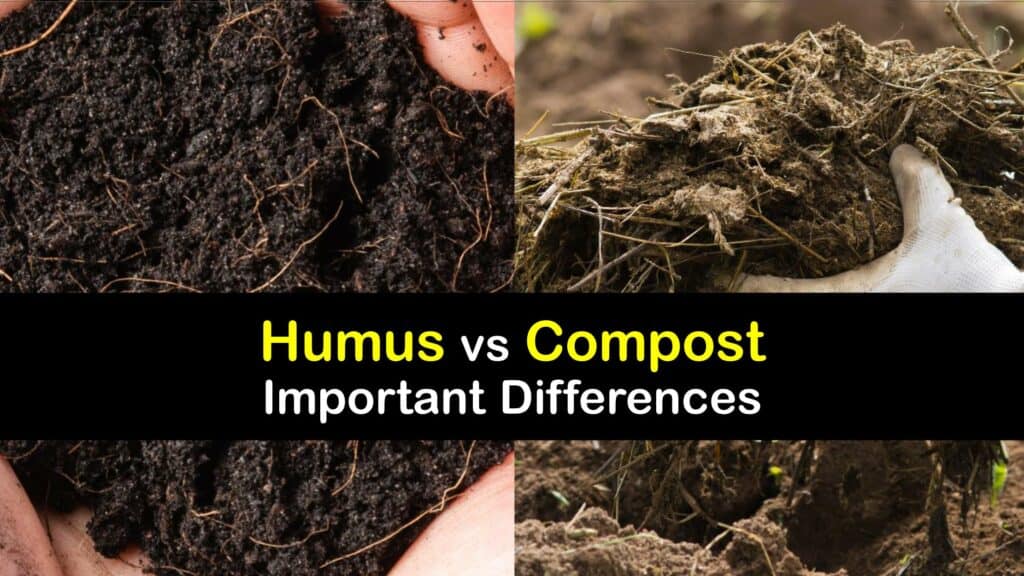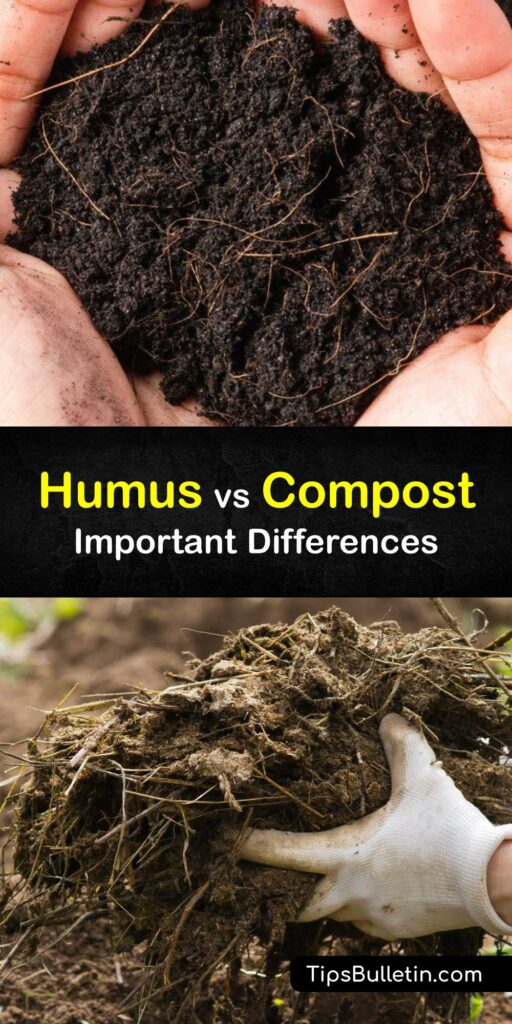If you’re a gardener, you’ve probably wondered about the difference between humus vs compost. Differentiating between humus and manure vs compost or figuring out which one to use for a project may seem daunting. Gardening technology advances, and we learn more about what it takes to cultivate healthy crops with large yields and vibrant hardy flowers. The choice of soil amendments at our disposal continues to increase.
Though many people confuse them, there is a definite difference between compost and humus, and it’s vital to understand which is which. Compost produces both compost and humus. Composting breaks up organic material, such as food waste or yard trimmings, with the help of microorganisms to produce valuable products.
Compost describes the material made from composting while it is still actively decomposing. Humus is the final product of composting when the matter is completely broken down and will undergo no further changes. Explore these soil amendments and how to use them to level up your gardening.

The Difference Between Compost and Humus
Composting is done in many ways, from a compost tumbler to a compost pile. During the process, any compost inside a tumbler is going to break down into finished compost. This includes organic matter such as grass clippings, plant material, and other yard waste. The finished compost eventually becomes humus if left to decay.
Understanding the difference between compost and humus allows you to use them appropriately. Explore humus vs compost and take advantage of these valuable products in your home garden.

Why Do Growers Use Soil Amendment?
Soil amendments enhance plant growth and improve the soil texture of the native garden soil in your home garden.
Soil amendments have a range of purposes, from increasing soil fertility to helping sandy soil retain water, expanding air pockets in clay soil, or boosting soil organic matter levels.
What is Compost?
An organic product of the composting process that is still decomposing is called compost, or somewhat misleadingly, finished compost. Compost improves soil quality and microbiome by introducing advantageous microbes to the soil. These microbes degrade organic waste to provide plants with critical nutrients for growth and development.
Compost improves soil, makes air pockets in the ground, and attracts invertebrates, including worms, to leave their nutrient-rich casts. Poor soil gains nutrition and a coarser soil structure from compost, enhancing drainage and water retention.
It’s important not to include weeds in your composter to prevent weed seeds from spreading in your finished compost.
What is Humus?
Humic substances have a design quite similar to a sponge. Organic material almost entirely disintegrated into its smallest components is called stable humus. Its ability to hold up to 80% of its mass in moisture makes humus important.
The delicate structure traps micronutrients between soil particles and keeps them from washing away, thanks to its humic acid content. Plant roots feed on the nutrients that stable humus stores.
Humus regulates soil pH (acidity/alkalinity), prevents illness, and assists soil warm-up in the spring. Its dark, nearly black tint also aids in soil warming.
Humus vs Compost and How to Use Them
Compost and humus differ because compost contains fresh organic components that are still decaying and have a somewhat coarse structure. When compost starts to decompose, it eventually transforms into stable humus. Within the compost, humus is still being created.
Though they are made from decomposed organic matter, humus and compost have different roles. Compost adds nutrition and active microbial agents to the soil. It improves the structure by providing air pockets around plant roots to prevent issues like root rot.
Humus rich soil has extra nutrition; it is different from compost as it stays warmer in winter and retains more water and nutrients.
Comparing Humus and Manure vs Compost
Are humus and manure the same as compost? While humus and finished compost are produced by composting, they differ in texture and nutritional value. Humus soil, finished compost, and fresh or composted manure are not the same.
Manure is made from animals rather than composting, and when fresh, it contains an excess of nutrients that can burn plants. After composting, manure is a valuable soil additive.
Once you understand the variation between humus and manure vs compost, it’s time to use them in your garden. Purchase humus, compost, and other amendments from a reputable dealer like Midwest Bio Systems to ensure you receive the best quality product.

If you loved this article on humus vs compost, please share these brilliant ideas on the difference between compost and humus with your friends and family on Pinterest and Facebook.